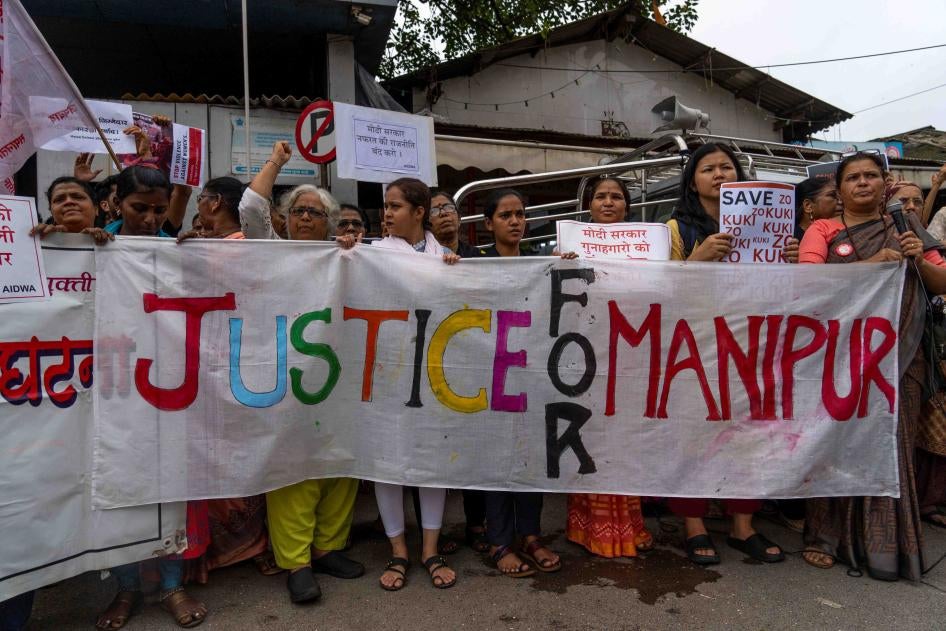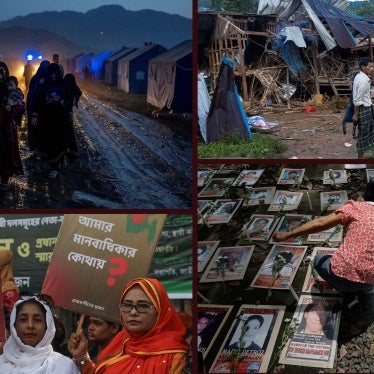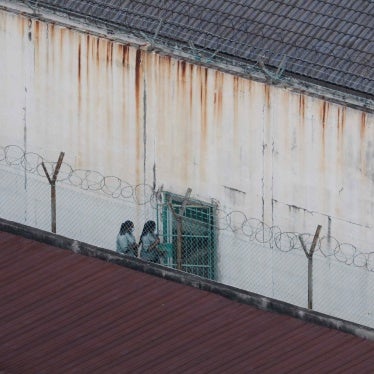(Bangkok) – The Indian government undermined its aspirations for global leadership as a rights-respecting democracy during 2023 with its persistent policies and practices that discriminate and stigmatize religious and other minorities, Human Rights Watch said today in its World Report 2024. The Hindu nationalist Bharatiya Janata Party (BJP)-led government also arrested activists, journalists, opposition politicians, and other critics of the government on politically motivated criminal charges, including terrorism.
“The BJP government’s discriminatory and divisive policies have led to increased violence against minorities, creating a pervasive environment of fear and a chilling effect on government critics,” said Meenakshi Ganguly, deputy Asia director at Human Rights Watch. “Instead of holding those responsible for abuses to account, the authorities chose to punish the victims, and persecuted anyone who questioned these actions.”
In the 740-page World Report 2024, its 34th edition, Human Rights Watch reviews human rights practices in more than 100 countries. In her introductory essay, Executive Director Tirana Hassan says that 2023 was a consequential year not only for human rights suppression and wartime atrocities but also for selective government outrage and transactional diplomacy that carried profound costs for the rights of those not in on the deal. But she says there were also signs of hope, showing the possibility of a different path, and calls on governments to consistently uphold their human rights obligations.
Indian authorities harassed journalists, activists, and critics through raids, allegations of financial irregularities, and use of the Foreign Contribution Regulation Act, which regulates foreign funding of nongovernmental organizations. In February, Indian tax officials raided the BBC offices in New Delhi and Mumbai in an apparent reprisal for a two-part documentary that highlighted Prime Minister Narendra Modi’s failure to provide security for Muslims. The government blocked the BBC documentary in India in January, using emergency powers under the country’s Information Technology Rules.
On July 31, communal violence broke out in Nuh district in Haryana state during a Hindu procession and swiftly spread to several adjoining districts. Following the violence, as part of a growing pattern, the authorities retaliated against Muslim residents by illegally demolishing hundreds of Muslim properties and detaining scores of Muslim boys and men. The demolitions led the Punjab and Haryana High Court to ask the BJP-led state government whether it was conducting “ethnic cleansing.”
Over 200 people were killed, tens of thousands displaced, hundreds of homes and churches destroyed, and the internet shut down for months, after violence erupted in May in Manipur state, in northeastern India, between the majority Meitei and the minority Kuki Zo communities. BJP’s state chief minister, N. Biren Singh, fueled divisiveness by stigmatizing the Kuki, alleging their involvement in drug trafficking, and providing sanctuary to refugees from Myanmar.
In August, the Supreme Court said the state police had “lost control over the situation,” and ordered special teams to investigate the violence, including sexual violence. In September, over a dozen United Nations experts raised concerns over the ongoing violence and abuses in Manipur, saying the government’s response had been slow and inadequate.
Indian authorities continued to restrict free expression, peaceful assembly, and other rights in Jammu and Kashmir. Reports of extrajudicial killings by security forces there continued throughout the year.
The government attempted to shield a BJP parliament member, Brij Bhushan Singh, after female athletes filed complaints of sexual abuse spanning a decade, when he was president of the Wrestling Federation of India. Security forces tackled and forcibly detained women wrestlers, including Olympic medalists, as they demanded justice and safety for female athletes.
In September, India, holding the rotating presidency, hosted the summit of the Group of Twenty (G20), the world’s largest economies, and pushed to include the African Union as a permanent member and make the group more representative and inclusive.
India actively promoted the use of a digital public infrastructure to expand delivery of social and economic services. However, rampant internet shutdowns, lack of privacy and data protection, and uneven access among rural communities harmed those efforts.









